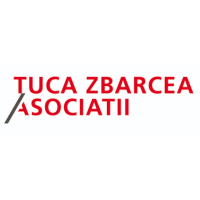

Legal Manager | Timac Agro




Elena Enache
Legal Manager | Timac Agro
Team size: Sole legal counsel
What are the most significant cases, projects and/or transactions that you and/or your legal team have recently been involved in?
Over the past year, I managed – from start to finish – a complex marine insurance claim (M/V Amethyst), involving broker Marsh and international co-insurers (Helvetia, MS Amlin, and CNA). I coordinated the procedure in a cross-border context with multiple stakeholders and different reporting standards, ensuring a coherent flow of communication and documentation. I structured the evidentiary package (expert report, storage and handling costs, legal consultancy, and opinion on product commercialisation) and supervised the validation and acceptance of these by the insurers.
A key aspect was negotiating and closely monitoring compliance deadlines, both from a contractual perspective and in line with audit requirements. The case was successfully closed on 1 July 2025, following the full recovery of compensation in the amount of €40,044.60, confirmed by the co-insurers. The result not only secured full financial recovery, but also safeguarded the company’s reputation and set a favorable precedent for handling similar incidents in the future.
Another major project was the negotiation and conclusion of storage and transport contracts with DACHSER Romania, an international logistics provider. During this process, I successfully obtained essential amendments in favor of the company, particularly regarding the limits of the warehouse keeper’s liability, insurance coverage, liability for inventory differences, and the right to reject non-approved subcontractors. The negotiation was complex, involving several rounds of discussions with the provider’s commercial and legal teams. These adjustments significantly strengthened the company’s legal and financial protection in its contractual relationship with a key logistics partner.
How do you approach managing legal aspects during periods of instability or crisis to ensure the organisation’s resilience?
During times of crisis or instability, my approach starts with an immediate assessment of contractual exposures and the rapid identification of critical obligations. In situations such as logistics disruptions, liquidity challenges, or cost-reduction needs, I review subscription-based and recurring service contracts to evaluate their actual utility and eliminate disadvantageous clauses. Where appropriate, I initiate renegotiations with partners to adapt contracts to new economic realities, either by adjusting pricing or reconfiguring services.
In parallel, I implement preventive measures: revising force majeure clauses, reassessing insurance policies, and strengthening internal compliance procedures. I maintain a close relationship with all departments and ensure that all documents with legal impact — from commercial contracts to banking documentation, correspondence with bailiffs, partners, or suppliers — are reviewed by me beforehand. This single line of legal validation allows for the anticipation of risks and the prevention of critical situations before they arise.
Through this integrated approach, I am able to ensure the company’s resilience, maintain strategic partnerships, and reduce exposure to financial and reputational risks.
What strategies do you employ to ensure the successful digital transformation of a legal department while maintaining compliance with your country’s data protection laws?
One area in which I made a direct impact was ensuring compliance with GDPR. Upon taking responsibility, I found that the company’s documentation — from standard contracts with clients and suppliers to internal policies — lacked the necessary data protection clauses and mechanisms. At the same time, the company was paying €2,000 per month to an external provider for generic services of little practical value, under a contract with extremely restrictive termination clauses that could have generated additional costs of over €20,000.
Bringing this contract to an end was a difficult process that required almost two months of intensive negotiations, numerous discussions, and document exchanges. Nevertheless, I succeeded in securing an amicable termination without penalties or additional costs, generating significant savings for the company and eliminating a constant source of contractual risk.
Subsequently, I internalised the entire compliance function, coordinating a comprehensive review of the company’s documentation. I introduced GDPR clauses into all relevant contracts and corporate acts, updated internal policies and procedures, and implemented mandatory staff training. Through this approach, I transformed an outsourced, costly, and superficial service into an internally managed process, fully aligned with GDPR, more efficient, and adapted to the company’s reality, thereby reducing costs and consolidating legal protection.
Have you had any experiences during your career as a lawyer that stand out as particularly unique or interesting?
One defining example from my career occurred two years ago, when I assisted a major client, Dr Gerard, in a complex tax matter regarding the applicable VAT rate for bakery and pastry products. At the time, the legislation was unclear: certain products containing sugar were subject to a higher VAT rate, while biscuits and sweet breads (cozonac) were exempted and could benefit from a reduced rate, regardless of additional ingredients such as chocolate coating.
I managed the case through a series of formal submissions and discussions with both the National Tax Authority (ANAF) and the Ministry of Finance, arguing the correct interpretation of the legal provisions. After several rounds of correspondence, I obtained a written confirmation from the Ministry that my interpretation was correct.
The outcome had a major impact for the client: based on the official confirmation, the company was able to continue applying the reduced VAT rate to its products, avoiding a significant financial burden and strengthening its competitive position in the market.
Looking forward, what trends do you foresee in the legal landscape over the next 5–10 years that companies should prepare for?
A priority area for me recently has been the implementation of new regulations on cybersecurity, specifically the NIS2 Directive transposed into Romanian law through Government Ordinance no. 155/2024 and Law no. 124/2025. I closely monitored the publication of the legislation and its secondary regulations in Romania and coordinated the company’s internal compliance process.
I consolidated the required information, completed the official NIS2RO tool v.01-2025, and submitted the documentation to the National Cybersecurity Directorate (DNSC), ensuring the company’s registration and compliance with the new requirements.
This experience confirmed the importance of the legal function in tracking European legislative trends and translating them into concrete procedures for the company. I believe such regulations will continue to grow in complexity, and legal departments must be prepared to integrate into business operations the evolving requirements of digital security, ESG, and compliance that define today’s business environment.